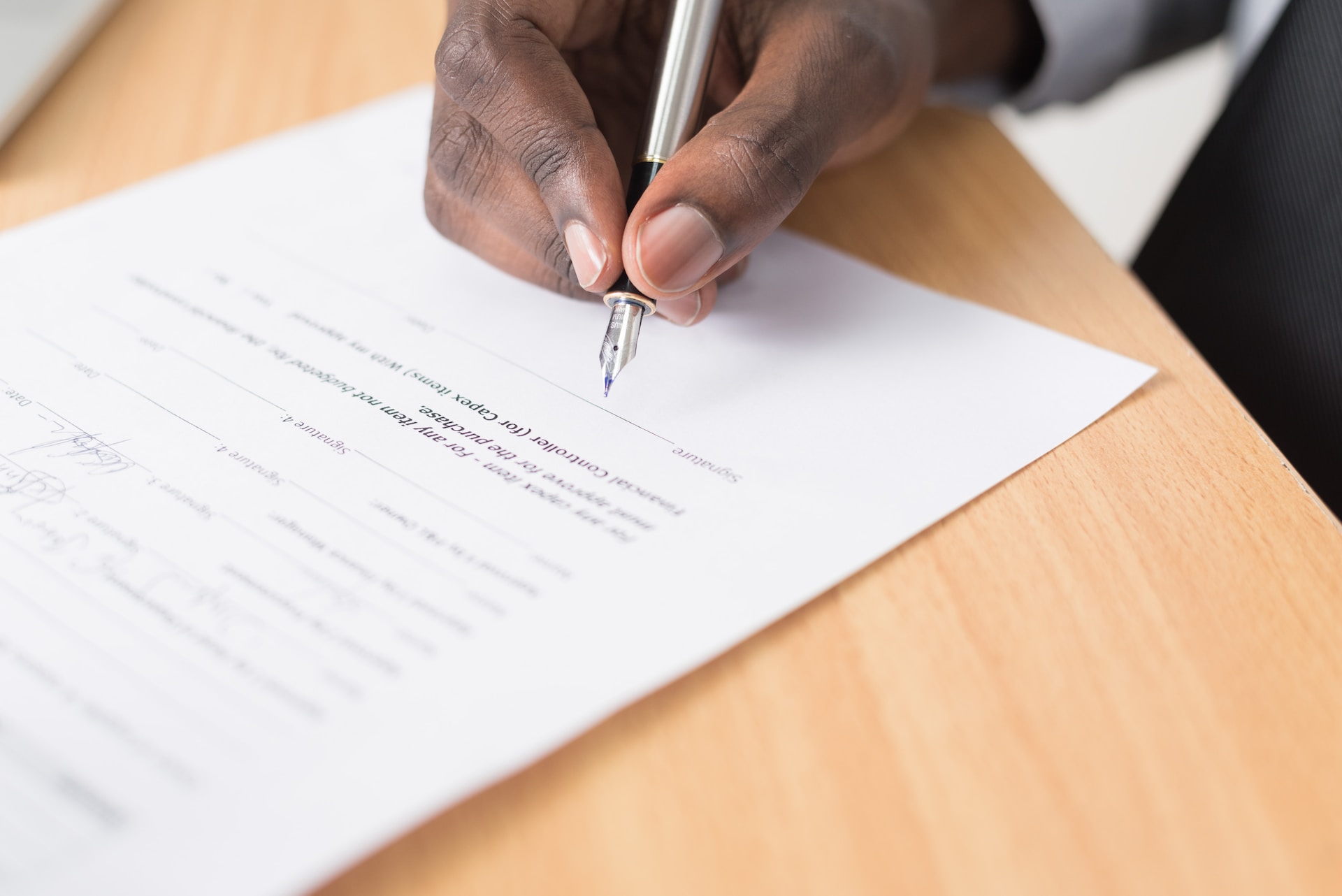If you’ve been involved in a car accident, you may be wondering how long you have to file a claim with your insurance company or a lawsuit against the other driver. The answer depends on several factors, such as where you live, what type of claim you’re making, and how severe your injuries and damages are.
In this article, we’ll explain the different time limits that apply to car accident claims and lawsuits, and why it’s important to act quickly after a crash. We’ll also give you some tips on how to file a claim effectively and get the compensation you deserve.
What Is a Car Accident Claim?
A car accident claim is a request for compensation from an insurance company after a collision. You can file a claim with your own insurer or with the insurer of the driver who caused the accident, depending on your state’s laws and the circumstances of the crash.
The purpose of a car accident claim is to cover your losses resulting from the accident, such as:
- Medical expenses
- Property damage
- Lost income
- Pain and suffering
To file a claim, you need to provide evidence of the accident, such as:
- A police report
- Photos and videos of the scene and the vehicles
- Witness statements
- Medical records and bills
- Repair estimates
The insurance company will review your claim and determine whether they accept liability and how much they are willing to pay you. They may offer you a settlement, which is a lump sum of money that you agree to accept in exchange for giving up your right to sue them. If you accept the settlement, the claim is resolved. If you reject it or can’t reach an agreement, you may need to file a lawsuit.
What Is a Car Accident Lawsuit?
A car accident lawsuit is a legal action that you take against the other driver or their insurance company if they refuse to pay you what you deserve for your injuries and damages. A lawsuit is usually a last resort when a claim cannot be settled out of court.
The purpose of a car accident lawsuit is to prove that the other driver was negligent and caused the accident, and that you suffered harm as a result. You also need to show how much compensation you are entitled to for your losses.
To file a lawsuit, you need to hire a lawyer who will prepare and file a complaint with the court. The complaint is a document that outlines your allegations and demands. The other party will receive a copy of the complaint and will have to respond within a certain time frame. They may admit or deny your claims, or make counterclaims against you.
After the complaint and response are filed, the lawsuit enters the discovery phase, where both sides exchange information and evidence related to the case. This may include:
- Interrogatories: written questions that each side has to answer under oath
- Requests for production: requests for documents or records that each side has to provide
- Depositions: oral interviews where each side can question witnesses under oath
The discovery phase can take several months or even years, depending on the complexity of the case and the cooperation of both parties. During this time, both sides may try to negotiate a settlement to avoid going to trial. If they can’t agree, the case will proceed to trial, where a judge or jury will decide the outcome.
How Long Do You Have to File a Claim or Lawsuit After an Auto Accident?
The time limit for filing a claim or lawsuit after an auto accident varies depending on:
- The state where the accident occurred
- The type of claim or lawsuit you’re making (bodily injury or property damage)
- The type of insurance coverage involved (no-fault or fault-based)
Each state has its own laws that set these time limits, which are called statutes of limitations. A statute of limitations is a deadline by which you must take legal action after an event, such as an accident. If you miss this deadline, you lose your right to sue or recover compensation.
How Long Do You Have to File an Insurance Claim After an Auto Accident?
The time limit for filing an insurance claim after an auto accident depends on whether your state follows no-fault or fault-based insurance rules.
No-Fault States
In no-fault states, each driver must file a claim with their own insurance company after an accident, regardless of who was at fault. This is because no-fault insurance covers
your own medical expenses and lost income up to a certain limit, regardless of who was at fault. This limit varies by state and by policy, but it’s usually between $10,000 and $50,000.
The 12 states that have no-fault insurance laws are:
- Florida
- Hawaii
- Kansas
- Kentucky
- Massachusetts
- Michigan
- Minnesota
- New Jersey
- New York
- North Dakota
- Pennsylvania
- Utah
In these states, you must file a claim with your own insurer within a specific time frame after the accident. This time frame is usually 30 days, but it can vary by state and by policy. For example, in New York, you must file a claim within 30 days, while in Michigan, you have up to one year.
If your injuries exceed the no-fault limit or meet certain criteria for severity, you may be able to file a claim or a lawsuit against the other driver for additional compensation. However, this option is restricted by the state’s threshold for serious injury, which can be based on:
- A verbal threshold: a description of the type and extent of injury that qualifies for a lawsuit, such as permanent disability, disfigurement, or death.
- A monetary threshold: a dollar amount of medical expenses that must be exceeded to qualify for a lawsuit, such as $2,000 or $5,000.
- A choice system: a system that allows drivers to choose between no-fault coverage or traditional liability coverage when they buy their policy.
Some states have a combination of these thresholds. For example, in New Jersey, drivers can choose between a verbal threshold or a monetary threshold of $250.
Fault-Based States
In fault-based states, the driver who caused the accident is responsible for paying for the injuries and damages of the other driver. This is because fault-based insurance covers the liability of the at-fault driver for bodily injury and property damage.
The 38 states that follow fault-based insurance rules are:
- Alabama
- Alaska
- Arizona
- Arkansas
- California
- Colorado
- Connecticut
- Delaware
- Georgia
- Idaho
- Illinois
- Indiana
- Iowa
- Louisiana
- Maine
- Maryland
- Mississippi
- Missouri
- Montana
- Nebraska
- Nevada
- New Hampshire
- New Mexico
- North Carolina
- Ohio
- Oklahoma
- Oregon
- Rhode Island
- South Carolina
- South Dakota
- Tennessee
- Texas
- Vermont
- Virginia
- Washington
- West Virginia
- Wisconsin
- Wyoming
Why Is It Important to File a Claim or Lawsuit Quickly After an Auto Accident?
There are several reasons why you should file a claim or lawsuit as soon as possible after an auto accident, such as:
- Preserving evidence: The sooner you file a claim or lawsuit, the easier it will be to gather and preserve evidence that supports your case, such as photos, videos, witness statements, medical records, and repair estimates. If you wait too long, some of this evidence may be lost, damaged, or unavailable.
- Protecting your rights: The sooner you file a claim or lawsuit, the more likely you are to protect your legal rights and avoid missing any deadlines. If you miss the statute of limitations or any other time limit imposed by your policy or the law, you may lose your right to sue or recover compensation.
- Getting compensation faster: The sooner you file a claim or lawsuit, the faster you can get the compensation you need to cover your medical bills, property damage, lost income, and pain and suffering. This can help you avoid financial hardship and stress caused by the accident.
How to File a Claim or Lawsuit Effectively After an Auto Accident
Filing a claim or lawsuit after an auto accident can be a complex and challenging process. To increase your chances of getting the compensation you deserve, you should follow these steps:
- Seek medical attention: The first thing you should do after an accident is to seek medical attention for your injuries. This will help you document the extent and severity of your harm, as well as prevent any complications or worsening of your condition. You should also follow your doctor’s advice and treatment plan, and keep copies of all your medical records and bills.
- Report the accident: The next thing you should do after an accident is to report it to the police and your insurance company. You should do this as soon as possible, preferably within 24 hours of the crash. You should also get a copy of the police report and the contact information of the other driver and any witnesses. You should be honest and cooperative when reporting the accident, but avoid admitting fault or giving any statements that could be used against you later.
- Hire a lawyer: The best thing you can do to protect your interests and maximize your compensation after an accident is to hire a lawyer who specializes in car accident cases. A lawyer can help you file a claim or lawsuit effectively by:
- Evaluating your case and advising you on your legal options
- Gathering and analyzing evidence to prove liability and damages
- Negotiating with the insurance company on your behalf
- Representing you in court if necessary
- Fighting for your rights and interests throughout the process
Hiring a lawyer can also save you time and money by taking care of all the legal aspects of your case while you focus on your recovery.

Conclusion
Car accidents can be traumatic and costly events that can affect your health, finances, and quality of life. If you’ve been injured or suffered damages in a car accident, you may be entitled to compensation from the insurance company or the other driver. However, you need to act quickly and file a claim or lawsuit within the time limit set by your state and policy.
To file a claim or lawsuit effectively after an auto accident, you should seek medical attention, report the accident, and hire a lawyer. These steps can help you preserve evidence, protect your rights, and get compensation faster.
If you need help with filing a claim or lawsuit after an auto accident, contact us today for a free consultation. We have the experience and expertise to handle any type of car accident case and get you the best possible outcome.
